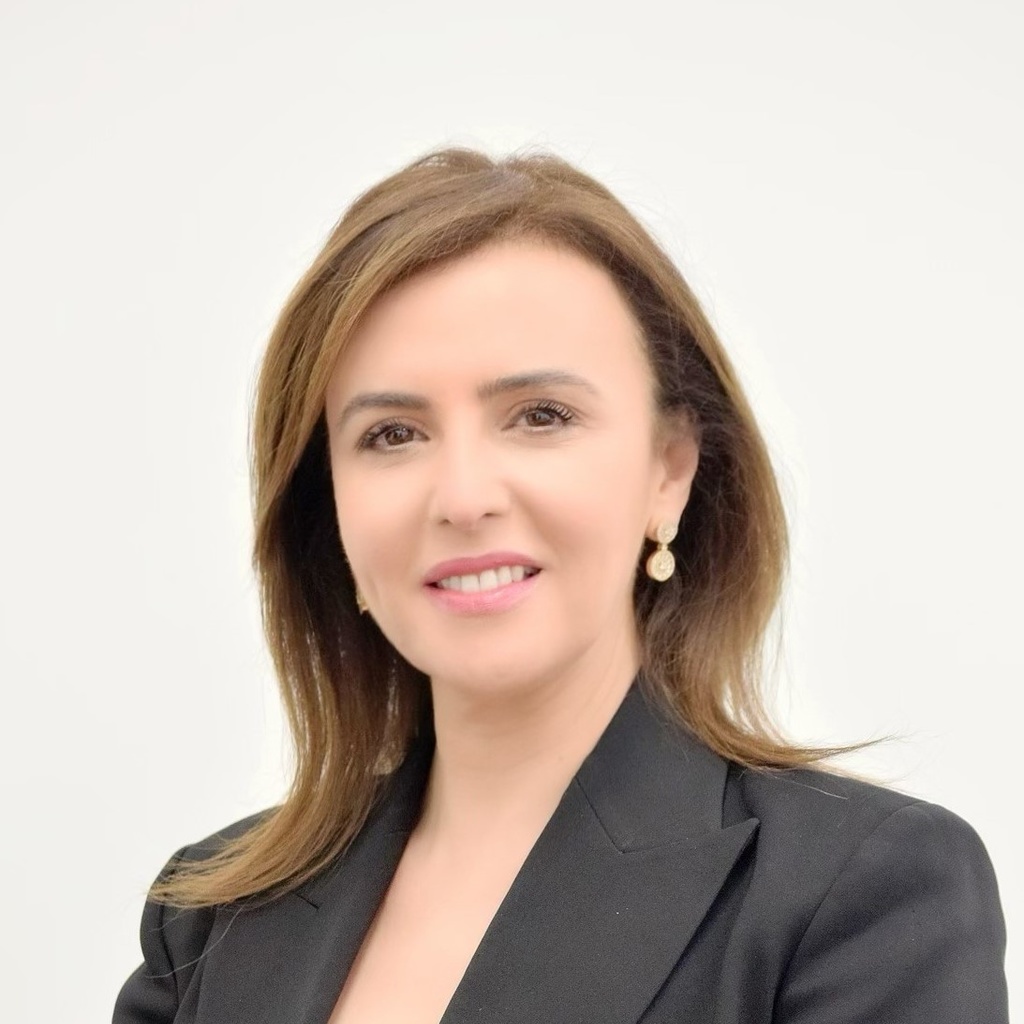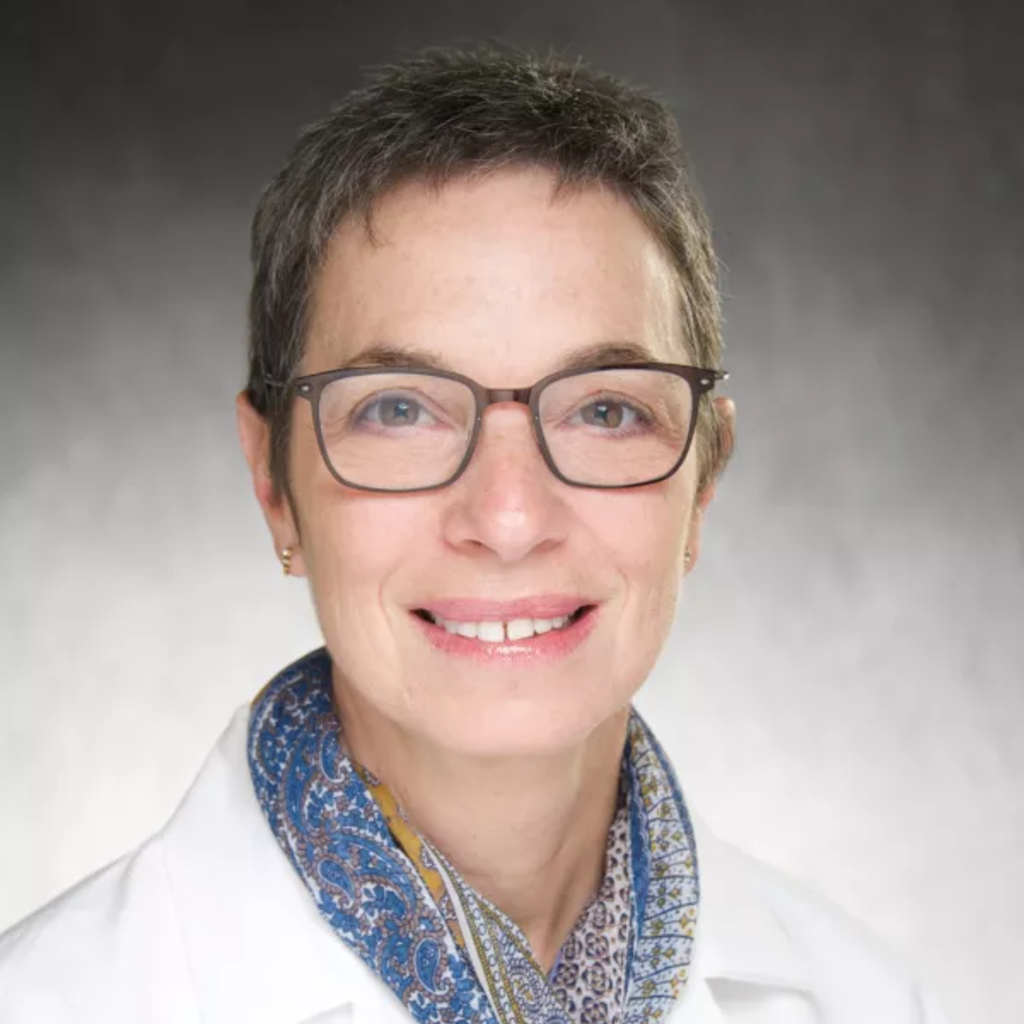
Tuesday, September 12, 2023 - Wednesday, September 13, 2023
Funding for the Major Projects Award provided by the generous support of the Stanley-University of Iowa Foundation Support Organization and UI International Programs (IP). Dr. Nada Melhem's visit is hosted by the Iowa Global Health Network (an IP affinity group) and the UI College of Public Health, in partnership with the Faculty of Health Sciences at the American University of Beirut (AUB).
The Major Project; Building Sustainable Multidisciplinary Global Health Collaborations: Connecting Ideas, Values, and People; seeks to spark human connections and inspire multi-disciplinary global health collaborations. This initiative will advance the goals of a recently established memorandum of understanding between the University of Iowa (UI) International Programs and the Faculty of Health Sciences at the American University of Beirut (AUB) in Beirut, Lebanon.
While rooted in an academic collaboration, this project goes further, bringing the conversation to the local community through community based events. The week-long visit by Dr. Nada Melhem, professor of infectious diseases and microbiology in the Division of Health Professions, Medical Laboratory Sciences, at the American University of Beirut, will lay the foundation for a sustainable, multilayered, and cross-disciplinary relationship between our two major academic health centers.
Public Events
Dr. Nada Melhem spent one week on campus, engaging with the community as well as students, faculty, and medical professionals at the University of Iowa. Events open to the public included:
Presentation hosted by the College of Public Health
Response to COVID-19 in Lebanon: update, challenges, and lessons learned
Tuesday, September 12, 2023, from 10:30 - 11:30 a.m. (CDT)
Location: UI College of Public Health Building, room C217
The socio-economic impact of COVID-19 was more severe on developing countries including Lebanon, especially due to the fragile healthcare system, weak surveillance infrastructure, and lack of comprehensive emergency preparedness and response plans. Lebanon had been struggling with a plethora of challenges at the social, economic, financial, political, and healthcare levels prior to the COVID-19 pandemic. The COVID-19 pandemic in Lebanon revealed gaps and challenges across the spectrum of preparedness and response to emergencies. The aim of this talk is to advance the epidemiologic evolution of COVID-19 in Lebanon pre- and post-vaccination, the challenges affecting the response and recovery, and the lessons learned.
Film Screening and Discussion hosted by FilmScene
Featuring the film, Costa Brava
Tuesday, September 12, 2023, at 7 p.m. (CDT)
Location: FilmScene at the Chauncey
Join Dr. Melhem and others in the screening of Costa Brava and a discussion to follow. The film is set in a near future, where Soraya and Walid build an idyllic life in the mountains, far from the disorder and pollution of Beirut, capital of Lebanon. There, they live with one of their parents and their two children — until installation of a supposedly ecological landfill disrupts their harmony.
Lecture hosted by the Iowa City Foreign Relations Council
Cholera in Lebanon: An Old Disease with a New Comeback
Wednesday, September 13, 2023, from 12 - 1 p.m. (CDT)
Location: Iowa City Public Library, room A
Cholera has been a global public health problem that resulted in seven pandemics since 1961. Lebanon is a small country in the Eastern Mediterranean Region (EMR) with an estimated population of 6.7 million and the highest number of refugees per capita per square meter in the world. The first cholera case was reported in North Lebanon on October 4, 2022, in an informal settlement followed by spread across the country; this is the first cholera outbreak in the country since 1993. Despite the confinement of cases in North Lebanon early during the pandemic, the economic crisis in Lebanon and the weakened healthcare infrastructure - exacerbated by the COVID-19 pandemic - played a significant role in the emergence of the cholera outbreak. This talk advances the understanding of evolution of the cholera spread in Lebanon since the reporting of the first case as well as the structural challenges leading to the spread of the disease.

Nada Melhem
Dr. Nada M. Melhem is a professor of infectious diseases and microbiology (virology and immunology) at the Faculty of Health Sciences, American University of Beirut, Lebanon. Melhem is currently the director of the Division of Health Professions and the chair of the Medical Laboratory Sciences Program at the Faculty of Health Sciences. With a unique background and training in virology, immunology, and epidemiology, Melhem developed at AUB a transdisciplinary and translational research program focusing on viral immunopathogenesis and the epidemiology of viruses, and their impact on global human health. Melhem’s research program focuses on human immunodeficiency virus type 1 (HIV-1), viral diarrheal diseases (specifically noroviruses), and COVID-19. Melhem is currently leading the SARS-CoV-2 National Surveillance Genomic Program for healthcare workers and hospitalized patients.
In addition to a track record of productive research work and publications, Melhem has several achievements in professional service. She is an elected council member of the International Society for Infectious Diseases and serves on the WHO SARS-CoV-2 Evolution Technical Advisory Group. She is also a member of the National Committee for Communicable Diseases since 2009, serving as a scientific advisor to the Minister of Public Health and the director general of the Ministry in Lebanon. During the COVID-19 pandemic, Melhem served as a member of the National COVID-19 Crisis Management Committee in Lebanon, as well as the WHO COVID-19 Epidemiology Technical Advisory Group, and was the representative of Low-Resource Settings on Rapid Evidence Assessment of Drug Candidates of the COVID-19 Clinical Research Coalition. Melhem has also been selected since 2022 to be the National Polio Containment Coordinator.
Organizers & recipients of Major Projects Award

Claudia Corwin
Dr. Claudia Corwin MD, received her medical degree from Washington University, St. Louis. Corwin completed her general surgery residency training at State University of New York at Downstate in Brooklyn, New York. She completed a fellowship in transplant surgery at the University of Iowa Hospitals & Clinics. With a longstanding interest in public health, she served as medical director of health care services for the Iowa Department of Public Health for several years, after which she subsequently completed a masters in public health at Johns Hopkins University. She completed a residency in occupational medicine at the University of Iowa College of Public Health dedicated to the health and wellbeing of vulnerable working populations. Corwin is the director of the Iowa Global Health Network, an International Programs affinity group at Iowa.

Rima Afifi
Dr. Rima Afifi, professor and director of the Prevention Research Center for Rural Health at the University of Iowa, engages in public health research and practice with intent to promote social, community, and policy environments conducive to wellbeing. Whenever possible, she uses methods of community-based participatory research; applies an ecological lens to the understanding of the issues; engages multiple disciplines to widen the perspectives on any topic; and emphasizes knowledge transfer of research to practice and policy. She is specifically interested in intervention and implementation science.
Most of Afifi's research and practice has centered on adolescent and youth health and wellbeing; and on the Arab world. This has infused her research and practice with critical reflections on the impact of global politics, economics, trade; and of war, conflict and contexts of uncertainty; as well as the power of youth agency and voice. A secondary area of research emphasis has been tobacco control, and particularly alternative tobacco products including hookah and e-cigarettes. Using the framework convention on tobacco control as a guidance document, her research has explored determinants of use, as well as policy solutions to minimize the morbidity and mortality burden of alternative tobacco products.
About Major Projects
Through the generous support of the Stanley-UI Foundation Support Organization, International Programs' Major Projects Award promotes important contributions to scholarly debates and exchanges on international topics, issues, discoveries, and arts.
International Programs' Major Projects encourage activities or endeavors on a broader scale. These may take the form of collaborations, symposia, conferences, lecture series, artistic exhibitions, and performance events.
All events are free and open to the public.
International Programs Monthly Newsletter
Stay current on events like this major project and others offered throughout the year.
Individuals with disabilities are encouraged to attend all University of Iowa sponsored events. If you are a person with a disability who requires a reasonable accommodation in order to participate in this program, please contact Daniel Vorwerk in advance by email at daniel-vorwerk@uiowa.edu or call 319-467-1619.